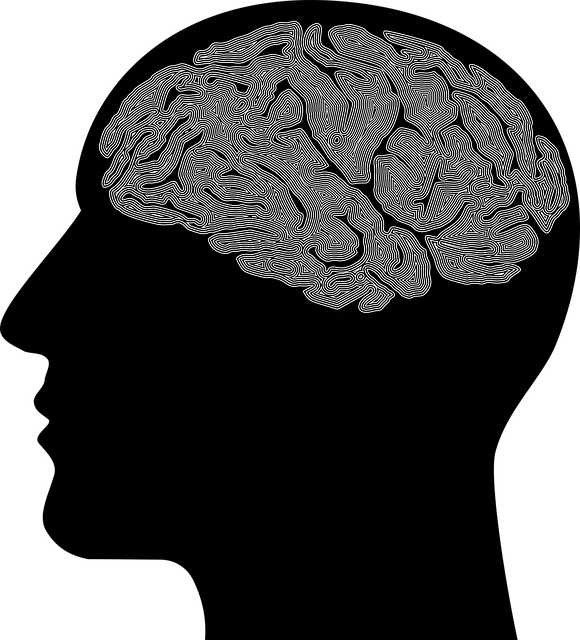Kaiser Permanente in Wheat Ridge provides self-assessment tools for mental wellness, focusing on Emotional Intelligence, Self-Esteem, and Inner Strength. These assessments promote awareness, encourage self-reflection, and guide individuals to develop healthier coping strategies. Offering evidence-based practices, a dedicated team, and tailored programs, Kaiser Permanente creates a supportive environment for effective mental health management. Their innovative tools, integrating communication strategies and emotional well-being promotion techniques, empower individuals from diverse backgrounds, with continuous user feedback ensuring their refinement over time.
Mental wellness self-assessment tools play a pivotal role in individual understanding and seeking support. This article explores the development of these tools, focusing on the importance and impact of accurate assessments for mental health awareness. We delve into strategies to enhance existing methods, highlighting successful initiatives by organizations like Kaiser Permanente, which offers comprehensive mental health services in Wheat Ridge. By examining key components and implementation techniques, this piece aims to contribute to the creation of effective self-assessment tools for improved mental wellness.
- Understanding Mental Wellness Self-Assessment Tools
- The Role of Kaiser Permanente in Mental Health Services
- Identifying the Need for Improved Assessment Tools
- Key Components of an Effective Self-Assessment
- Development and Implementation Strategies for New Tools
Understanding Mental Wellness Self-Assessment Tools

Mental Wellness Self-Assessment Tools are designed to help individuals gain insights into their emotional and psychological well-being. These tools, like those offered by Kaiser Permanente in Wheat Ridge, play a crucial role in promoting mental health awareness and supporting people on their journey towards better mental health. They provide an opportunity for self-reflection, allowing users to assess various aspects of their lives, including stress levels, emotional resilience, and overall satisfaction.
By utilizing these assessments, individuals can identify areas where they excel in terms of Emotional Intelligence, Self-Esteem Improvement, and Inner Strength Development. This process facilitates personal growth, enables healthier coping mechanisms, and encourages proactive measures to maintain or enhance mental wellness. Such tools are valuable resources for anyone seeking guidance in navigating their emotional landscape.
The Role of Kaiser Permanente in Mental Health Services

Kaiser Permanente, a renowned healthcare organization, plays a pivotal role in providing comprehensive mental health services in Wheat Ridge and beyond. They recognize the growing importance of addressing mental wellness and have developed various programs to support individuals seeking assistance. With a dedicated team of healthcare professionals, Kaiser offers a range of services tailored to different needs, from individual therapy sessions to group support meetings.
The organization’s approach focuses on evidence-based practices, ensuring that patients receive effective treatments. They emphasize building empathy between patients and caregivers through strategic communication, which is a powerful tool for stress reduction and mental health management. By incorporating innovative Empathy Building Strategies and Stress Reduction Methods, Kaiser Permanente creates a nurturing environment, empowering individuals to take charge of their mental wellness journeys.
Identifying the Need for Improved Assessment Tools

In today’s fast-paced world, the demand for accessible and effective mental wellness self-assessment tools is more crucial than ever. While organizations like Kaiser Permanente offer comprehensive mental health services in Wheat Ridge, the need for advanced assessment methods cannot be overstated. Traditional approaches often fall short in capturing the nuanced complexities of individual emotional well-being, leading to less personalized treatment plans.
This gap highlights the importance of developing innovative tools that go beyond basic assessments. By integrating communication strategies and emotional well-being promotion techniques, these new tools can empower individuals to actively participate in their mental health journeys. Moreover, a thorough Mental Health Policy Analysis and Advocacy is essential to ensure these assessment tools are not only effective but also aligned with broader community needs and accessible to diverse populations.
Key Components of an Effective Self-Assessment

An effective mental wellness self-assessment tool, such as those developed by organizations like Kaiser Permanente in their Wheat Ridge location, should incorporate several key components to ensure accuracy and usefulness. Firstly, it must include a comprehensive list of symptoms and behavioral patterns associated with various mental health conditions, allowing individuals to reflect on their own experiences. This section should cover common symptoms across different disorders, enabling users to identify potential issues beyond specific labels.
Secondly, the self-assessment should integrate risk factors and protective elements. By assessing personal history, current circumstances, and coping strategies, it can provide a holistic view of an individual’s mental wellness. Incorporating questions related to Self-Esteem Improvement and exploring support systems can offer valuable insights for at-risk individuals. Moreover, including sections on Mental Wellness Coaching Programs Development as part of the assessment can guide users towards appropriate resources or interventions, ensuring they receive tailored support based on their self-reported mental health status.
Development and Implementation Strategies for New Tools

The development of new mental wellness self-assessment tools requires a strategic approach to ensure their effectiveness and impact. Kaiser Permanente’s Wheat Ridge location, known for its comprehensive healthcare services, can lead the way in creating innovative solutions. One strategy is to involve a diverse team of experts, including psychologists, psychiatrists, and cultural sensitivity specialists, to design tools that cater to various populations. Incorporating Inner Strength Development techniques can empower individuals to navigate their mental health journeys.
When implementing these new tools, Trauma Support Services should be integrated to address the unique needs of those with traumatic experiences. Cultural Sensitivity in Mental Healthcare Practice is paramount to ensure that the assessments are inclusive and respectful of diverse backgrounds. User feedback loops and continuous improvement processes will refine the tools over time, making them accessible and beneficial for Kaiser Permanente’s patients seeking mental health support.
Mental wellness self-assessment tools play a crucial role in individual understanding and navigating their mental health. By drawing on innovative strategies, such as those employed by organizations like Kaiser Permanente in Wheat Ridge, we can enhance these tools’ effectiveness. Incorporating key components like accessibility, validity, and user-friendliness ensures that assessments are meaningful and actionable. Continuous development and implementation of these tools are essential to stay abreast of evolving mental health needs, fostering better outcomes for individuals seeking support.






